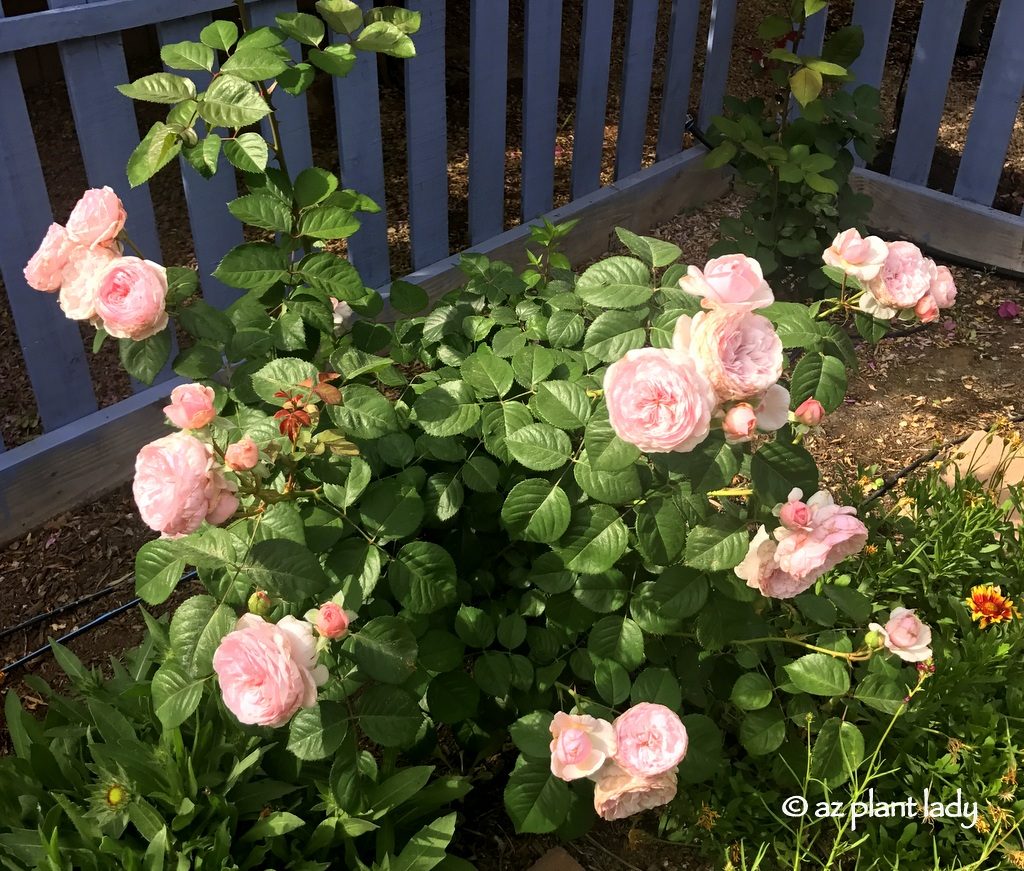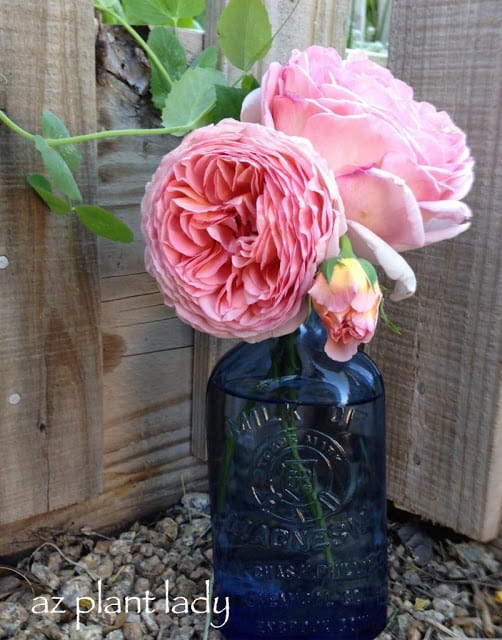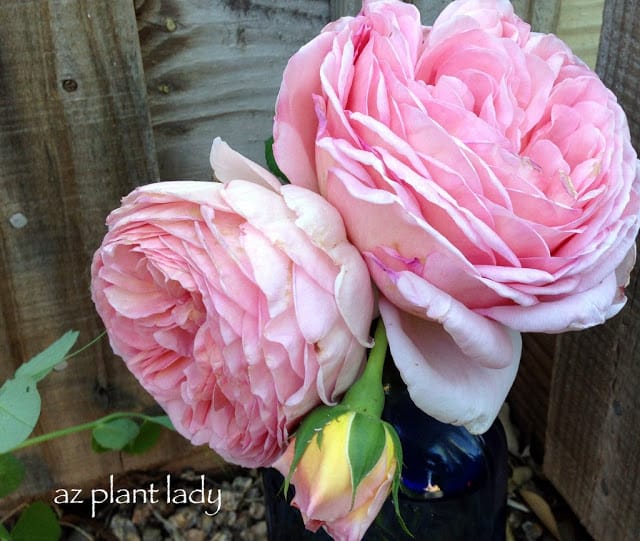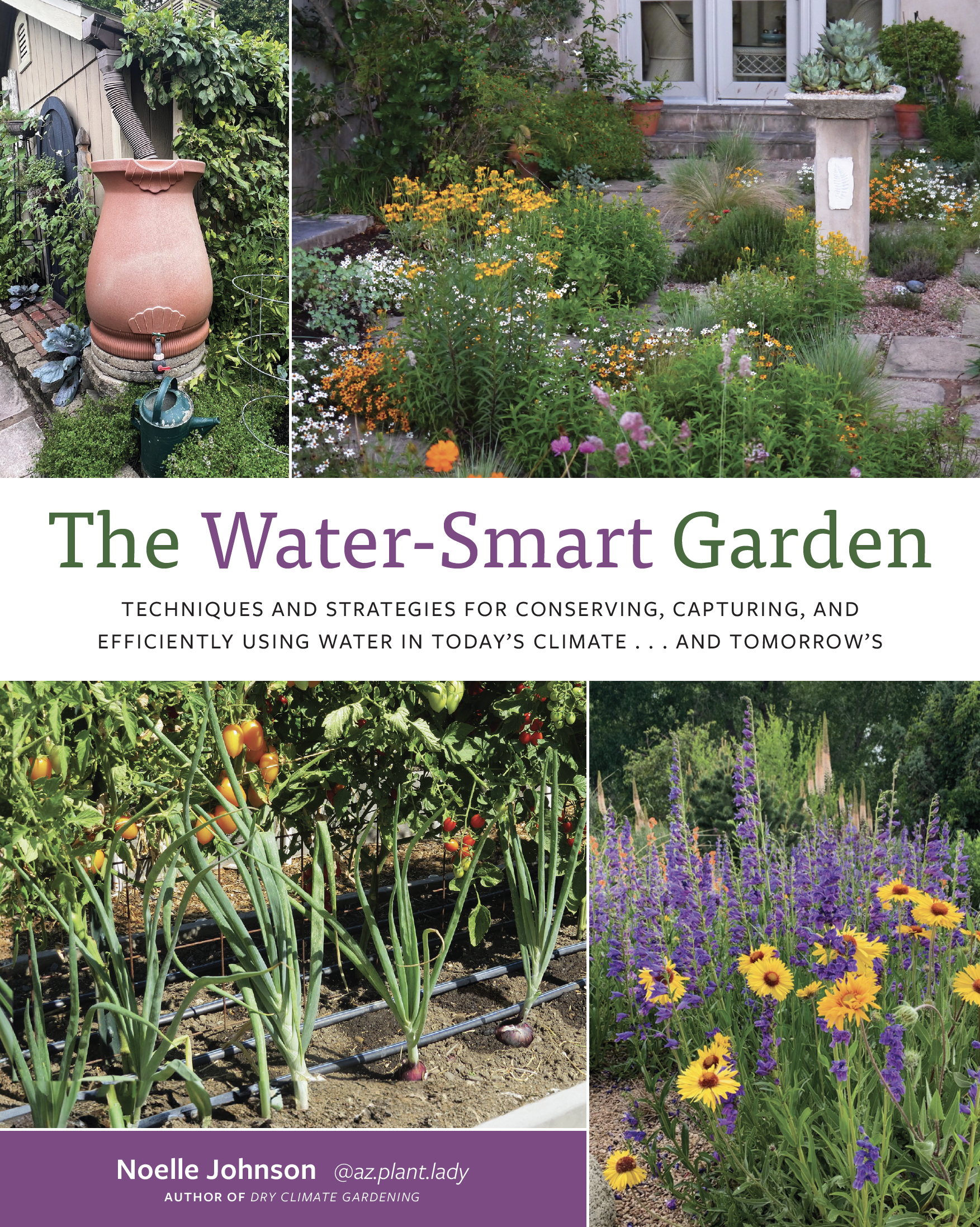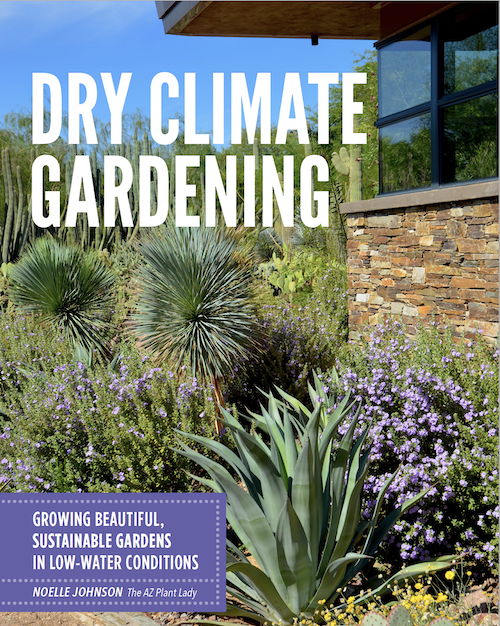
Photo: Roses Feeling The Heat , My Abraham Darby shrub rose and my little dog, Tobey.
Challenges of Hot Arid Climates for Roses
If you live in a hot arid climate, chances are that your roses are feeling the heat and aren’t looking their best right now. While gardeners in cooler climates celebrate summer with beautiful rose blooms, the opposite is true for those of us who live in the desert.
Surprisingly, roses actually grow quite well in hot, southwestern zones, and even though mine look somewhat sunburned – I’m not worried because this is normal. Understanding proper irrigation makes a big difference, but roses feeling heat will still have concerns.
Effects of Roses Feeling Heat with Intense Sun and Warmth
You see, roses that are grown in the low desert regions, don’t like the intense sun and heat that summer brings. As a result, the flowers become smaller, and the petals burn in the sun and turn crispy. By July, you are unlikely to see any new roses appearing until Fall.

Impact on Rose Plant Leaves
The rose blooms aren’t the only parts of the roses feeling heat concerns in summer – the leaves can become sunburn.
The sight of brown crispy petals and leaves may make you want to prune them away, but don’t.
Why?
Avoiding Premature Pruning
Pruning will stimulate new growth that will be even more susceptible to sunburn damage. Second, the older branches and leaves will help to shade the growth underneath the sun.
Strategic Pruning Schedule will Help Roses Feeling Heat
I know that it is very hard not to prune away the brown leaves – I feel you. However, in September, pull out your pruning shears and prune back your rose bushes by 1/3. This removes the sun-damaged flowers and leaves and stimulates new growth.

Comparative Benefits of Hot Arid Climates
If you lament the less-than-stellar appearance of your summer roses feeling heat, and think it’s easier to grow roses in other climates, you would be wrong.
Oh, certainly, we have to deal with our roses not looking great in the summer. But, compare that with gardeners in other regions who have to deal with the dreaded Japanese beetle that shows up every summer and eats their roses. Or, people who live in more humid climates and are having to deal with severe cases of blackspot or powdery mildew (white spots on the leaves).
Blessing of Dual Bloom Seasons in the Southwest
Lastly – we are fortunate to enjoy two separate bloom seasons for our roses. In fall, when many other gardeners are putting their roses to bed for the winter, ours are getting ready to bloom a second time that year.

And so, I will ignore my less than beautiful roses this summer, because I know that they will look fantastic this fall It is that simple 🙂
Two New Roses Find a Home in a Desert Garden



